Covid: First UK death recorded with Omicron variant
- Published
Boris Johnson confirms a patient has died with Omicron in UK
At least one person in the UK has died with the Omicron coronavirus variant, the prime minister has said.
Boris Johnson said the new variant was also resulting in hospital admissions, and the "best thing" people could do was get their booster jab.
Health Secretary Sajid Javid told MPs Omicron now represented 20% of cases in England.
Mr Johnson said people needed to recognise "the sheer pace at which [Omicron] accelerates through the population" and that they should set aside the idea that Omicron was a milder variant.
The prime minister tweeted, external that more than half a million people had booked their booster jab on Monday, which he described as an "incredible feat".
The UK recorded 54,661 new coronavirus cases on Monday, as well as 38 deaths within 28 days of a positive test.
There are 4,713 confirmed cases of the Omicron variant but Mr Javid said the UK Health Security Agency (UKHSA) estimated the current number of daily infections was around 200,000.
Omicron has risen to more than 44% of cases in London and is expected to become the dominant variant in the city in the next 48 hours, he said.
The 200,000 figure for Omicron infections is based upon UKHSA modelling. BBC medical editor Fergus Walsh said with Omicron doubling every two to three days, it could go from a small to a huge number very quickly.
Parliament will vote on the government's strategy to counter the Omicron variant on Tuesday, with a Conservative rebellion expected, but Labour leader Sir Keir Starmer said it was his party's "patriotic duty" to back the measures.
In a televised address, he said Labour backed the target of giving boosters to all adults by the end of the month and urged people to come forward for their top-up jab.
On Monday, the UKHSA confirmed 10 people had been admitted to hospital in England with the Omicron variant.
Their ages ranged from 18 to 85 years old and the majority had received two doses of a Covid vaccination, the agency said.
Starmer: Labour supports the government's booster drive
As hospital admissions and deaths lag behind infections by about two weeks, Mr Javid said the country could "expect those numbers to dramatically increase in the days and weeks that lie ahead".
England's booster programme has been expanded in response to the new variant, with online bookings for boosters opened for over-30s on Monday, while 18 to 29-year-olds will be able to book online from Wednesday.
The health secretary described the UK as being in a "race between the virus and the vaccine", stressing that the vaccination push would come with "difficult trade-offs" - with primary care services focusing on urgent clinical needs and vaccines.
Cancer treatments would not be affected by the requirement to redeploy staff, the prime minister's official spokesman has said.
Mr Javid said setting the booster target would mean "asking a huge amount" of NHS staff and was not a guarantee that every person would get their vaccine by the end of the month.
The NHS had announced it would return to its highest level of emergency preparedness, he said, meaning the response to Omicron could be coordinated as a national effort rather than led by individual trusts.
He also said the NHS Covid pass would be rolled out to 12 to 15-year-olds for international travel.
Meanwhile, the NHS website crashed on Monday as thousands of people tried to book their booster, and there have also been long queues at walk-in centres.
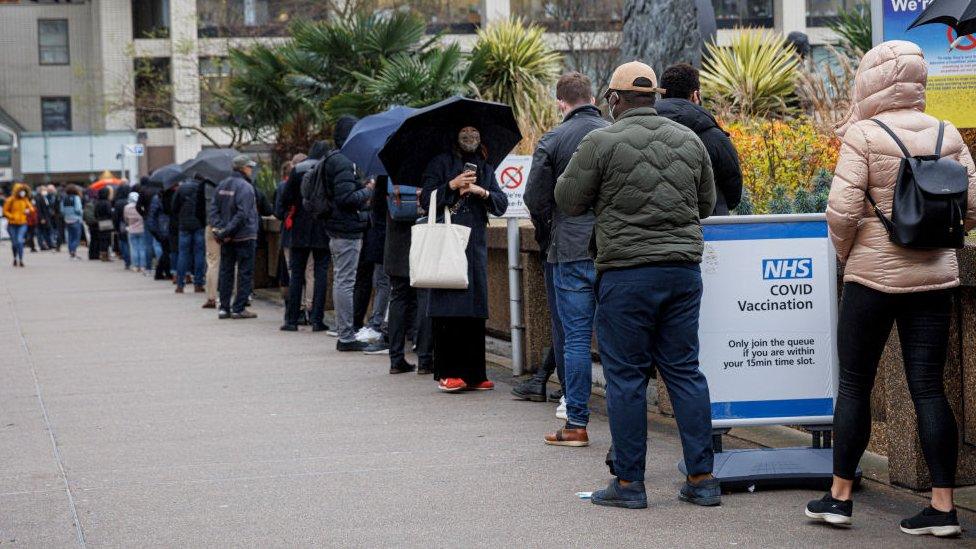
There have been long queues at some walk-in vaccination centres
New orders for lateral flow tests on the government website were temporarily suspended due to high demand, after it was announced that from Tuesday people who are fully vaccinated will be advised to take daily tests if they are identified as a contact of someone who has Covid.
Mr Javid said limits on ordering tests were linked to delivery capacity, not due to a shortage of the tests themselves, and that new arrangements had been reached with Amazon and others to address this.
As well as the expansion of boosters, new Plan B measures are being introduced in England to slow the spread of Omicron including advising people to work from home, making facemasks mandatory in most indoor public spaces and requiring Covid passes for entry to nightclubs and other large venues.
Around 70 Conservative MPs have signalled they could oppose some of the new measures in a Commons vote on Tuesday, particularly mandatory Covid passes.
But with Labour's backing, the measures will almost certainly pass.
Mr Javid said that once all adults had been given a "reasonable chance" of getting a booster jab, the rules would be changed so that three jabs were necessary to be considered fully vaccinated for entry to nightclubs and large events using the NHS Covid pass.
The health secretary suggested travel restrictions on people arriving in the UK could be changed, saying the justification for the rules was "minimised" as the new variant was already "spreading rapidly" throughout the country.
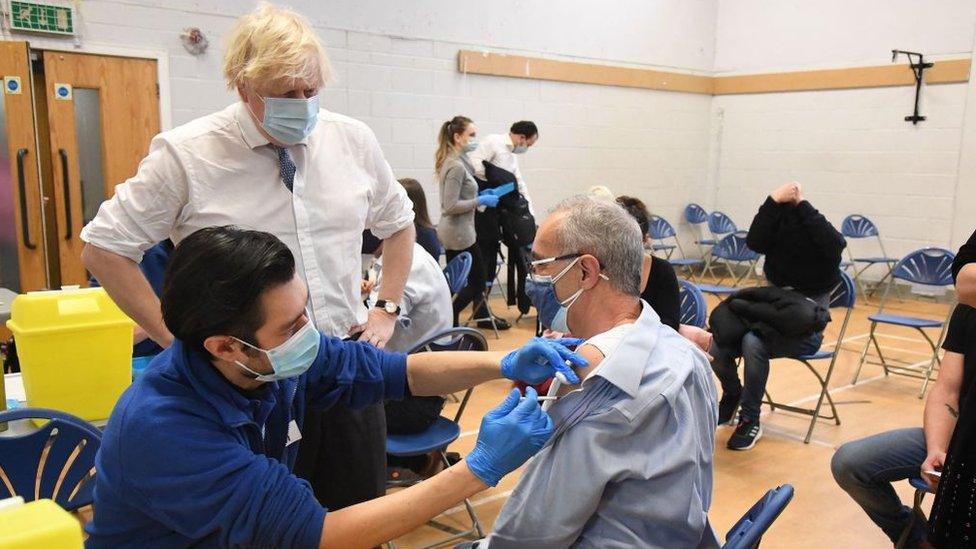
The prime minister visited a vaccination clinic in west London on Monday
The prime minister has repeatedly declined to rule out further restrictions ahead of Christmas.
Wales' chief medical officer Dr Frank Atherton has warned that curbs on people socialising may have to be reimposed in response to the Omicron variant.
Data suggests Omicron is more transmissible than previous variants, with cases doubling in the UK every two to three days.
The UK's Covid alert level has been raised to level four - which means a high or rising level of transmission - for the first time since May due to its spread.
Early analysis suggested two doses of a Covid vaccine were not enough to stop people catching Omicron, but the UK Health Security Agency found a third dose gave around 70% to 75% protection against symptomatic infection.
To reach the government's boosters target, one million doses would have to be administered a day.
More than half a million booster jabs and third doses were given in the UK on Saturday, but on Sunday the figure was down to 397,532.
Some 750 armed forces personnel have been made available to support the booster rollout in England and Scotland.
And England's deputy chief medical officer Prof Jonathan Van-Tam has written to everyone who previously volunteered to help the vaccine rollout to encourage them to return to help with boosters.
Scotland and Wales are also aiming to offer booster vaccine appointments to all over-18s by the end of the year. In Northern Ireland, over-30s are now eligible for booster jabs.


WILL FUTURE WARS BE FOUGHT ENTIRELY BY MACHINES? Stuart Russell discusses the role of AI in conflicts
THE WEDDING DETECTIVES: Just two photos lead to a story of infidelity and murder

- Published13 December 2021
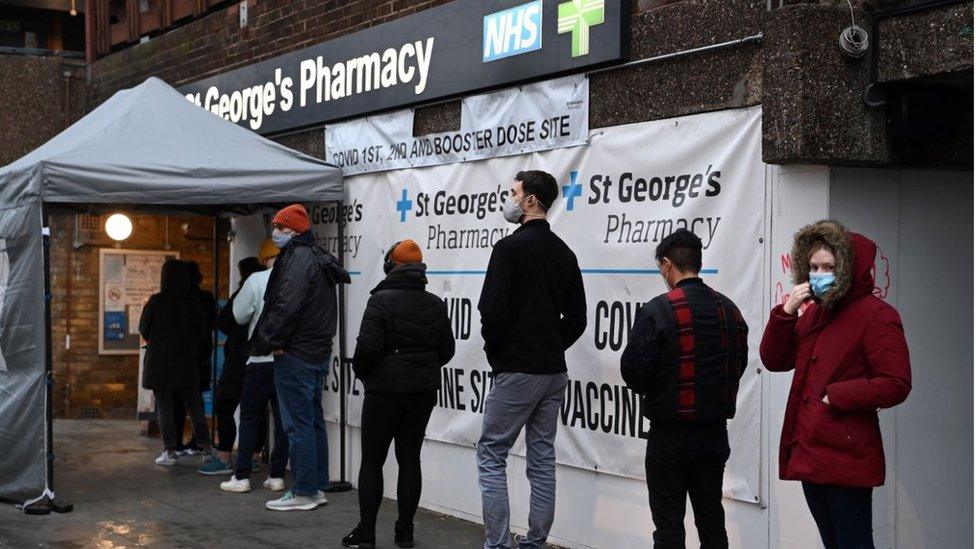
- Published13 December 2021
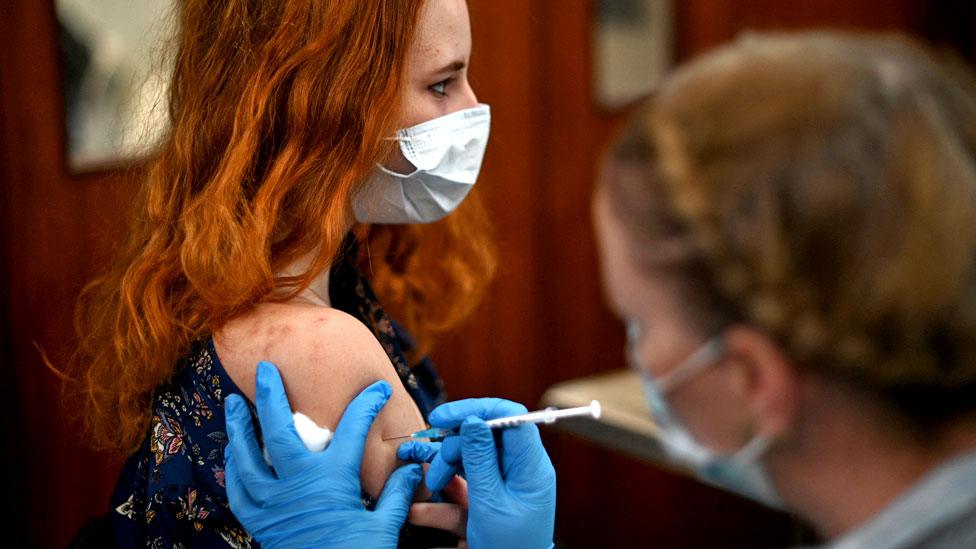
- Published13 December 2021
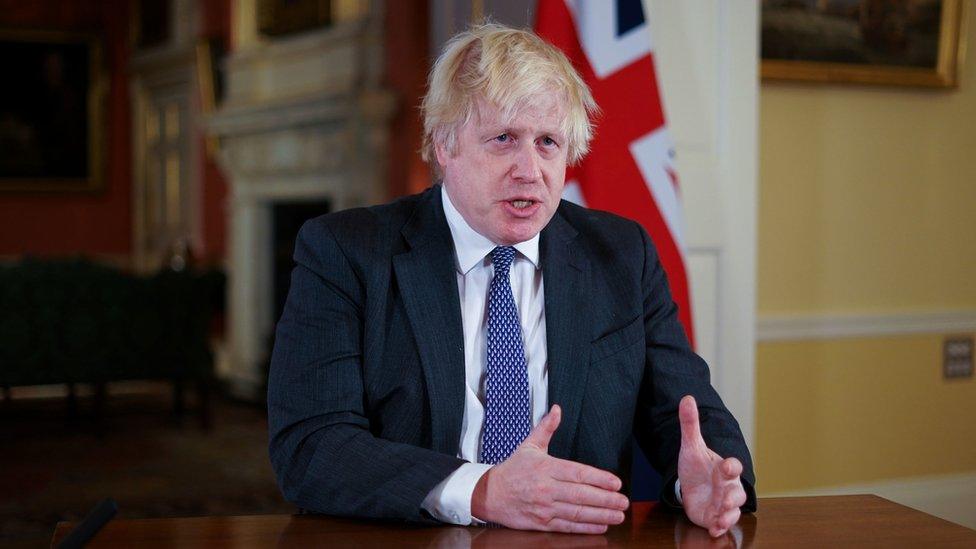
- Published13 December 2021
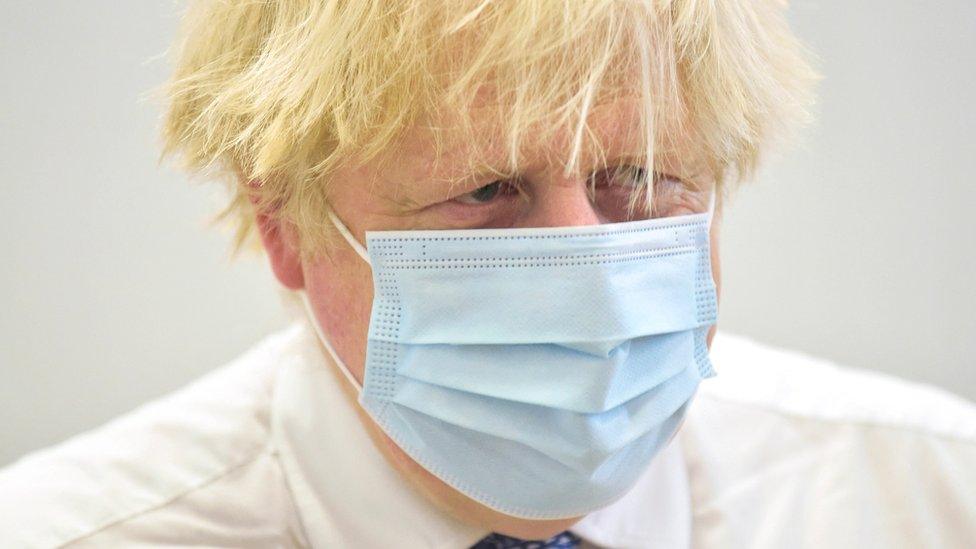
- Published2 April

- Published13 December 2021
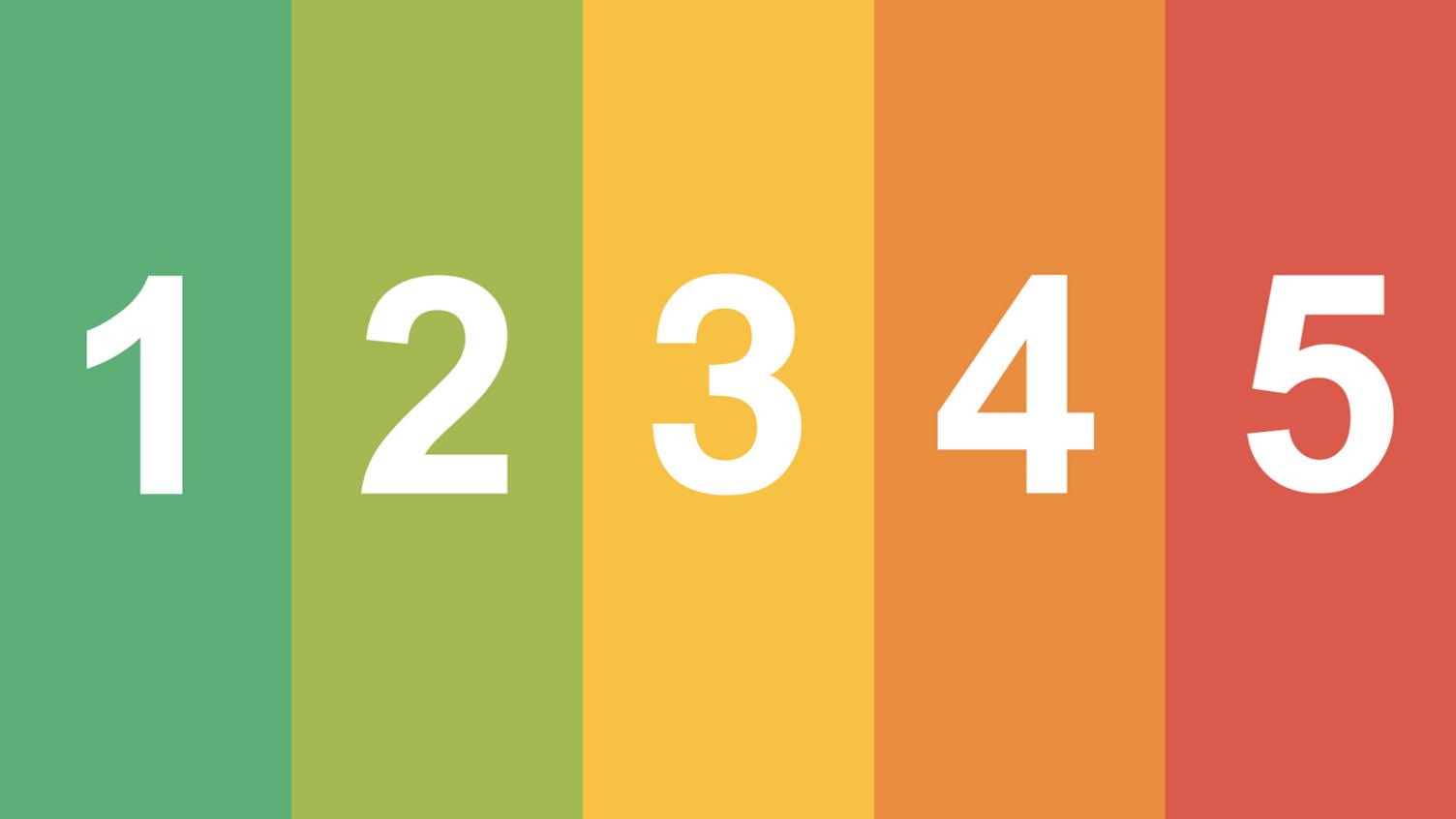
- Published1 July 2022

- Published12 December 2021